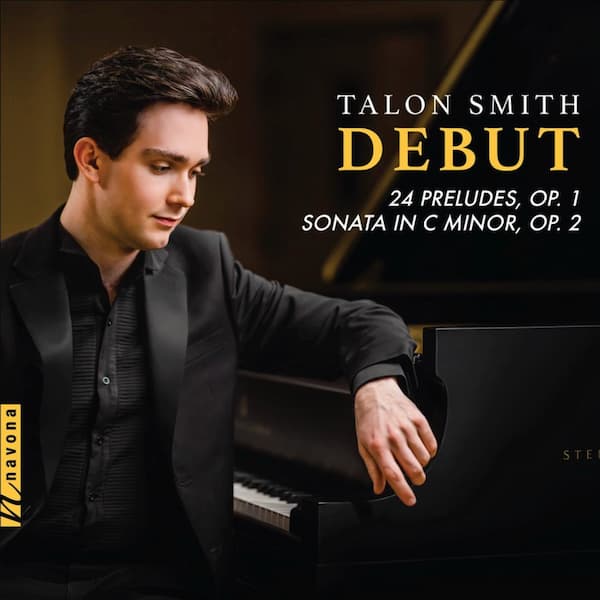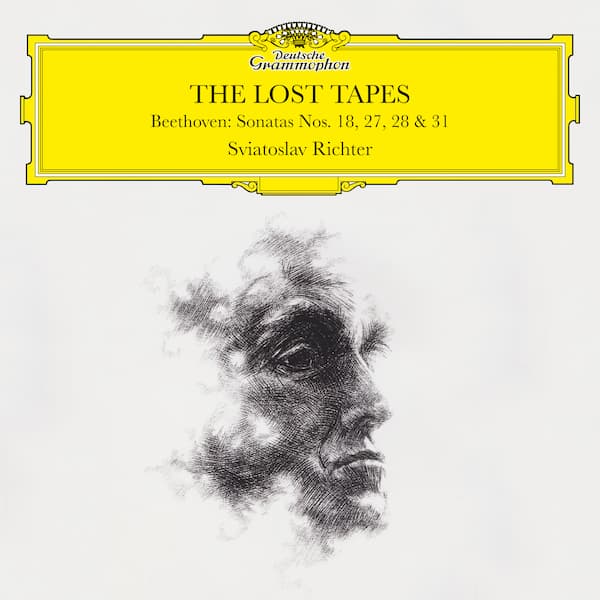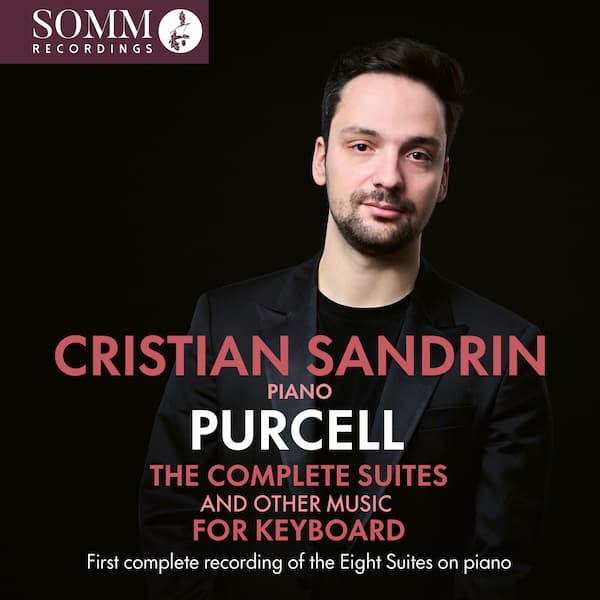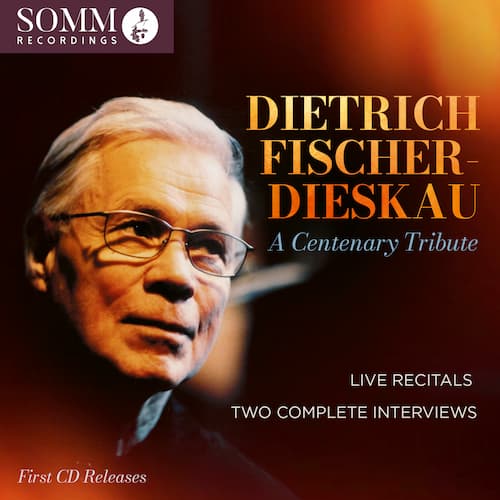Charles Mauleverer is a British composer from the picturesque island of Jersey. He recently launched his debut album titled “Overture”. The album includes solo and orchestral compositions created by the composer between 2003 and 2022. In this interview, Charles shared with us some insights into this project, which he started back in 2015.
Charles Mauleverer: “Overture”
The album features your compositions from 2003 to 2022, arranged in a unique order. Have you always wanted to combine your older and newer works?
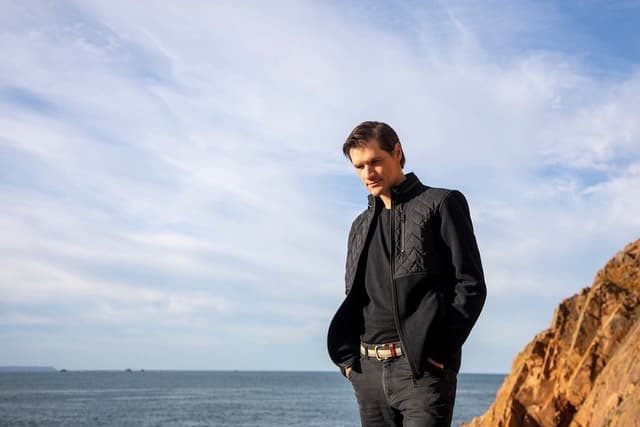
Charles Mauleverer
The short answer is no – this came out of a need to finally put out my work, and it took a long time to gather the resources to record these orchestras at a high level. I feel so lucky to finally have this album now, but it has taken a very long time. I had the privilege of making some incredible orchestral recordings with John Wilson in 2005, but there were complications, as they ended up being owned by one of my former teachers. This ownership created some limitations on what I could do with the recordings. Despite taking so long, it feels really good to be in a position of having ownership and control of this work.
In the album, the recordings were not in chronological order. What were the ideas of the order of the album?
I arranged the pieces by orchestral group, so the first three were performed by the Royal Scottish National Orchestra, the next three were recorded by the Prague Symphonic Ensemble, and the final four by the Slovak Radio Symphony Orchestra. That was one idea for the grouping. I was so pleased with all the recordings. The playing from the Royal Scottish National Orchestra came out really beautifully on three of my favourite pieces, so I wanted to start with these recordings.
How long was the recording process? Were all the recordings collected around the same time?
The oldest recordings (tracks 4-6) were produced in 2015 with the Prague Symphonic Ensemble and Jérôme Kuhn. In 2022, I went to Bratislava to record with the Slovak Radio Symphony Orchestra, and soon after that, I recorded in Glasgow with the Royal Scottish National Orchestra. We used 3 separate mixing engineers, but the mastering was all completed together at Abbey Road.
Have you had any working relationships with the orchestras before? How did you connect with the different orchestras?
The first connection was through some friends from the Royal College of Music who had been working in Prague with a lovely orchestra there. I was invited along to a recording by a friend, and I became friends with the conductor following those sessions. The conductor, Jérôme, seemed to like my music and amazingly seemed very keen to help sponsor some recordings himself. He also commissioned my first Symphony, “ONE HOME”, a project about climate change, which has been performed a few times in Europe now. I can’t wait to get that piece properly recorded, but it also involves a large choir.
I was introduced to Johannes Vogel, the conductor of the Slovak Radio Symphony Orchestra, by a friend of a friend. They are a really excellent team in a beautiful city.
Lee Reynolds is a fairly young British conductor who works with the London Symphony Orchestra. I knew about him through a suggestion by John Wilson. Reynolds is such a fantastic talent and seemed to work as a package incredibly well with the Royal Scottish National Orchestra.
Is there a particular style in this album?
This is an introductory album and contains some of my much more approachable tonal music. Some pieces were constructed on quite a strict compositional process, but I still hope to write work that blends accessibility and comprehensible language with integrity. I think three of these pieces were originally written for film.
In this album, are there any particular pieces that represent you the most?
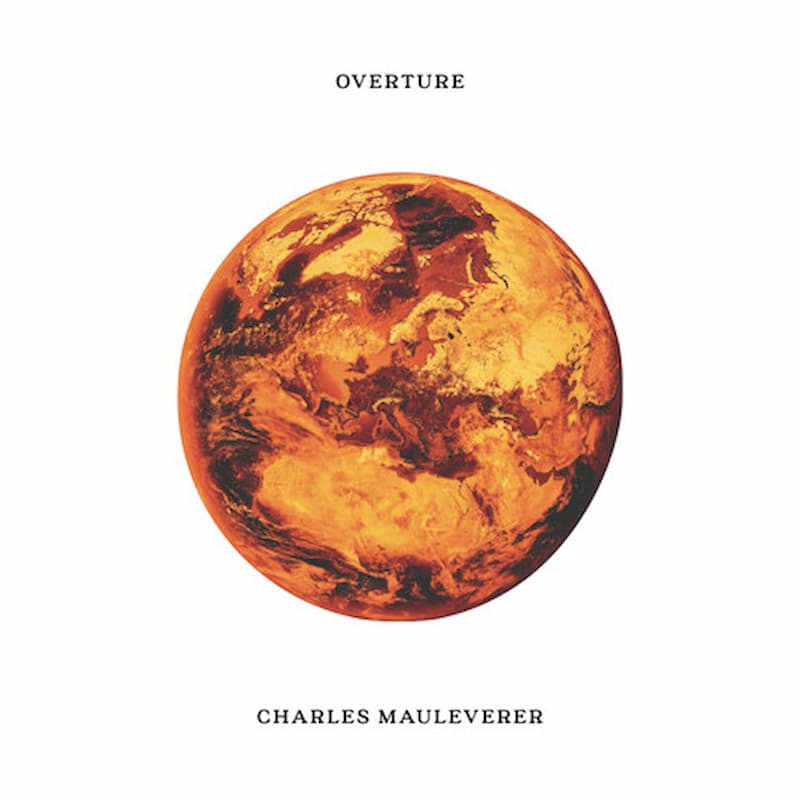
What has been really lovely about this album is that different people have responded so differently to the pieces, and so many people have a different favorite recording. That means a lot to me. It is very hard to choose one for myself because they all mean totally different things: one was written for my brother’s wedding; one is about my favorite animal, the snow leopard, originally written during a master extension in Berlin; one is a piece of Richard Strauss arranged for my final orchestration at Oxford; and one was for my final master’s orchestration at Royal College in London. The last track on the album is dedicated to my old teacher Jo (Joseph Horovitz), who passed away in 2022. Jo and his family escaped to England from Vienna when the Nazis came. He likely would not have otherwise survived. These pieces all contain such different meanings to me. I am very proud of the Nonet, as well as my most recent piece, Cornish Idyll, as being representative of music that I feel integrates its themes; I wouldn’t change a note. I remember that’s how my old teacher Jo would describe his lessons with Nadia Boulanger in Paris; she would push him to justify every single note on the page. I try to do that if I possibly can.
Do you have some upcoming projects that you would like to share with us?
I had the good fortune in 2022 to record my second and third symphonies. One is called Two Brothers, about two very young boys who fought in the First World War; the other is called Five Curiosities, and that is about 5 curiously interesting places in Jersey, the little island where I come from, sandwiched between England and France. We have some quite fascinating locations there, including old, abandoned tunnels from the Second World War. We have a fun cultural moment every summer called the Battle of Flowers, in which lorries are covered in thousands and thousands of flowers and driven slowly along the coast with dancers and musicians. I wrote a short movement about sitting and watching them go in different directions using a range of interwoven musical themes. There are also some more challenging moments compositionally for the audience, including some extended techniques for the orchestral textures, such as chains on the Tam-tam and a vast string cloud of all audible pitches, or an “acoustic palindrome”, meaning the whole orchestral movement is recorded, that recording reversed, and the reversed recording is fitted on top of the same material to create a palindrome, evoking the seemingly cyclical nature of war; it is fully acoustic rather than just the retrograde of the material and things like that which hopefully sounds new, interesting and very different from this first album Overture. Two Brothers was played live in 2018 when we were commemorating 100 years of the end of the First World War. I hope that the recording of the Symphonies will be ready later this year.
I am also working on a full set of piano pieces. I recently released the first of 25 pieces, Daffodils. The rest will form a collection of 24 Preludes for Piano, one in each key.
Daffodils
The album Overture is available at: www.charlesmauleverer.com
For more of the best in classical music, sign up for our E-Newsletter

